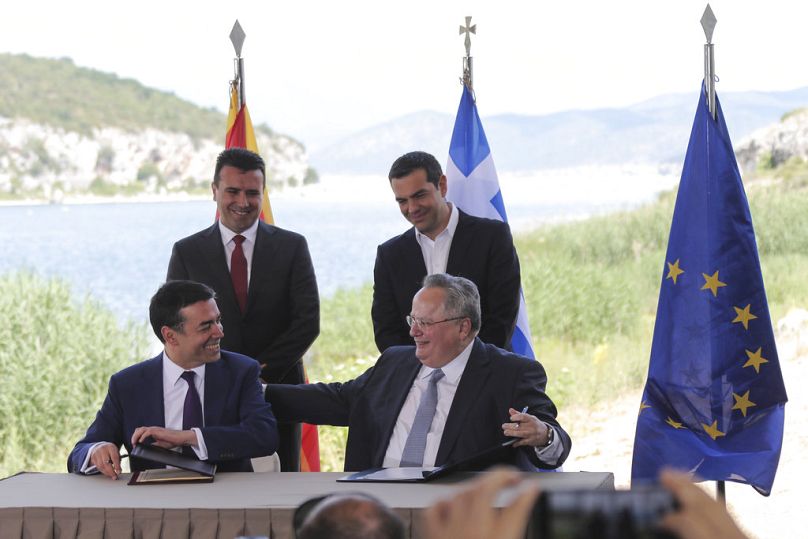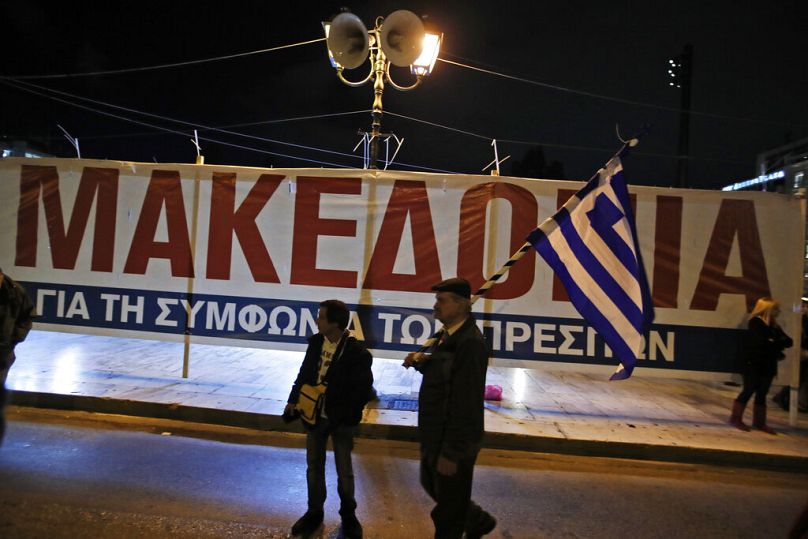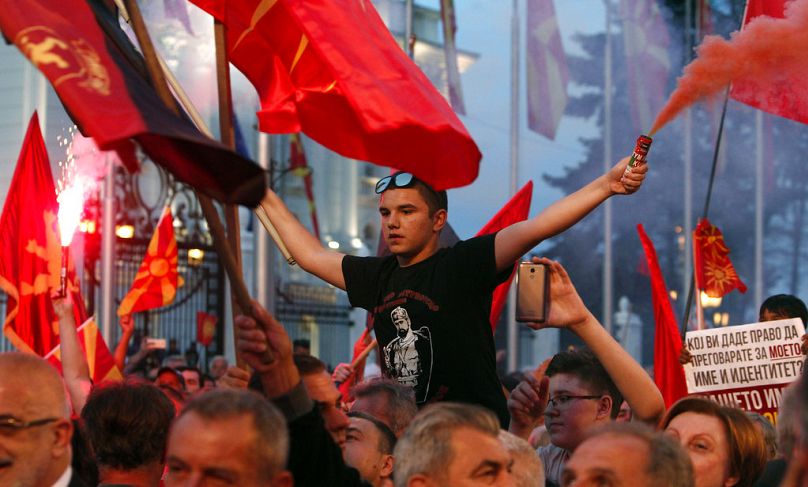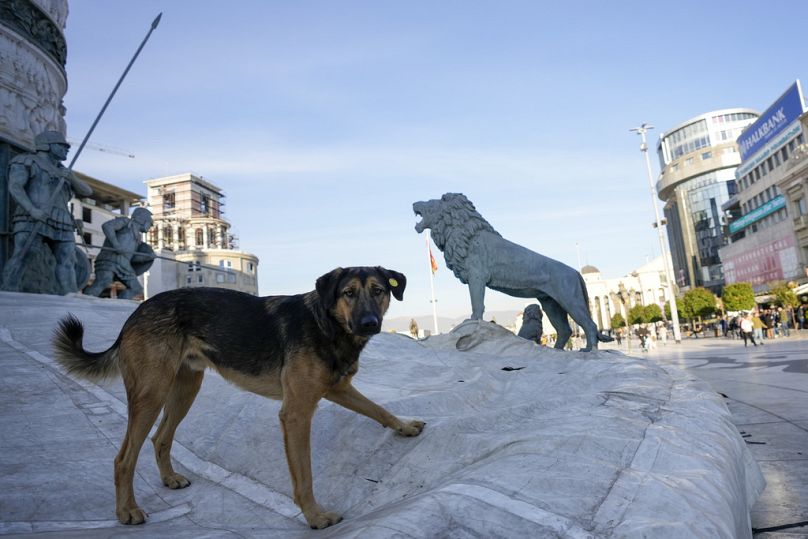The agreement is a welcome reality, even among many of its opponents, because reopening the dispute would be much worse. I plead for a display of leadership in both countries, Greece and North Macedonia, to face this reality and stop playing petty politics with this issue, Nikola Dimitrov writes.
The swearing-in ceremony of the newly elected President of North Macedonia, Gordana Davkova Siljanovska, caused an uproar in Athens, Brussels, and many other European capitals.
Not because she is the first-ever female president of the country or because she just won a landslide victory. It also wasn't about something she said. Actually, it was about what she did not say.
While taking her oath of office, President Davkova omitted the directional adjective "North" and said just "Macedonia" despite signing a formal oath under her country's constitutional name on the same day.
Yet, given that she campaigned on a pledge to respect but not pronounce the full constitutional name of the country she now leads, citing her personal right of self-determination and taking into account her criticism of the Prespa Agreement, her gesture alarmed neighbouring Greece.
Prime Minister Kyriakos Mitsotakis warned that any deviation from the agreement would have severe consequences for the relations between the two and the European integration path of us here in North Macedonia.
The now infamous name issue strained the relationship between Skopje and Athens for 27 years, ever since the independence of the then-Republic of Macedonia in 1991, until it was resolved with the signing of the Prespa Agreement in 2018.
It also blocked North Macedonia's NATO membership and EU accession for over a decade.
'You are my hero, may you rot in hell'
I have personally spent 15 years trying to solve the problem: initially as a diplomat and chief negotiator, then as a co-agent before the ICJ on a related case, and finally serving as foreign minister.
Together with my Greek colleague Nikos Kotzias, we achieved what had previously seemed impossible and succeeded where Sisyphus couldn't.
Meeting half way took time for both nations. Kotzias and I both received threats and hate mail on one side and praise on the other.
"You are my hero" and "May you rot in hell" were the starkly contrasted greetings I received in Skopje on a daily basis back in 2017 and 2018.
The agreement we signed is a good compromise, addressing the critical concerns of both sides. It calmed bilateral relations at the time and kickstarted renewed connections between our peoples, opening the door for friendship and cooperation.
You can't please everyone
Prespa has elements that are difficult for both countries. The Macedonian language, for instance — an expression of the right of self-determination of ethnic Macedonians — is something many Greek politicians struggle to accept or pronounce.
The same goes for the country's international codes: we can still use MK and MKD, except on vehicle license plates.
Yet, although the international traffic rules say otherwise, these codes are not found on the road signs to Skopje across Greece. You wouldn't even see "North Macedonia" beside the signs directing you towards Bulgaria or Turkey.
On our end, using "North" remains a stumbling block for many Macedonian politicians, especially when they have to say it back home.
However, if we had not accepted the use of the compound name North Macedonia for all official purposes and at all times, there would have been no deal because this was a critically important issue for the Greek side.
For many in Greece, even the compound name is unacceptable, as they would prefer their neighbouring country not to have the word Macedonia in its name at all.
All this shows is that no agreement could be reached that would completely satisfy both sides.
Yet, the Prespa Agreement, globally praised as a triumph of diplomacy and the most significant agreement in the Balkans — the region has an abundance of disputes but few solutions — since Bosnia's 1995 Dayton Peace Accord, was hampered by various sides.
How many blows can you take before collapsing?
The first blow came from VMRO-DPMNE, the landslide winner of the recent elections. In 2018, the party, in essence, boycotted the referendum on the compromise.
While the Macedonian citizens (or the citizens of North Macedonia, if you prefer) voted "yes" in huge numbers, the "no" votes — expected to come from VMRO-DPMNE's supporters — were too few, and the required turnout was not reached.
The boycott kept the national wound half-open. The people did not decide.
The second blow — and this may come as a surprise to many readers not familiar with our pains in the Balkans — came from the EU itself.
Before the referendum on the Prespa Agreement, many European leaders, including German Chancellor Angela Merkel (France's President Emmanuel Macron sent a video message), came to Skopje and made a public promise to the people: support the agreement and we will open accession talks with your country.
Well, that promise was broken. France first walked it back in 2019, with another neighbour, Bulgaria, proudly taking over the veto torch ever since.
Politics of humiliation prove costly
Worse still, Bulgaria adopted a formal hostile stance against one of the two fundamental pillars of the Prespa Agreement — the Macedonian language and identity.
As Bulgaria got away with its indecent and counterproductive policy on its smaller neighbour and managed to pave the European path for North Macedonia with Bulgarian demands, the EU as a whole became complicit in undermining the agreement it loudly praised, as well as its own enlargement policy.
Not surprisingly, only about one-third of the Macedonian public today believes that the EU is serious about enlargement — an embarrassing defeat for Brussels, considering that an overwhelming majority of Macedonians trusted the EU just a few years earlier.
Finally, the outgoing government in Skopje's gross incompetence in organising the replacement of the citizens' ID cards, passports and driver's licenses under the constitutional name — forcing citizens into a situation where they can't travel, drive, or even go to the bank to get their paychecks or pensions — caused humiliation and aggravated the problem to the extreme.
On the other side of the border, the New Democracy government did not invest much political energy in implementing the Prespa Agreement. It simply tolerated it. I recently wrote that the incoming government of North Macedonia should do the same. It looks like I was wrong.
A plea for reason to prevail has to be made
What we need instead of tolerance is leadership. The agreement is a welcome reality, even among many of its opponents, because reopening the dispute would be much worse.
And I plead for a display of leadership in both countries, Greece and North Macedonia, to face this reality and stop playing petty politics with this issue.
Face those within your respective constituencies who would only accept maximalist solutions for their side and who are nostalgic for disputes and antagonisms.
Remind them that they have lost. And push forward with the full implementation of the Prespa Agreement, including the challenging and sometimes painful steps.
Leadership is also desperately needed on the EU side. Deliver on your promise, limit the ridiculous number of veto opportunities in the accession process, and do not fall prey to the domestically driven past-century whims of any single member state on things that truly matter.
Be a force for good, and do not undermine but rather amplify the efforts of those who have invested political capital in solving intractable disputes.
Nikola Dimitrov is a diplomat, think-tanker and political activist from North Macedonia. As Foreign Minister, he negotiated and signed the Prespa Agreement in 2018.
Contact us at view@euronews.com to send pitches or submissions and be part of the conversation.




